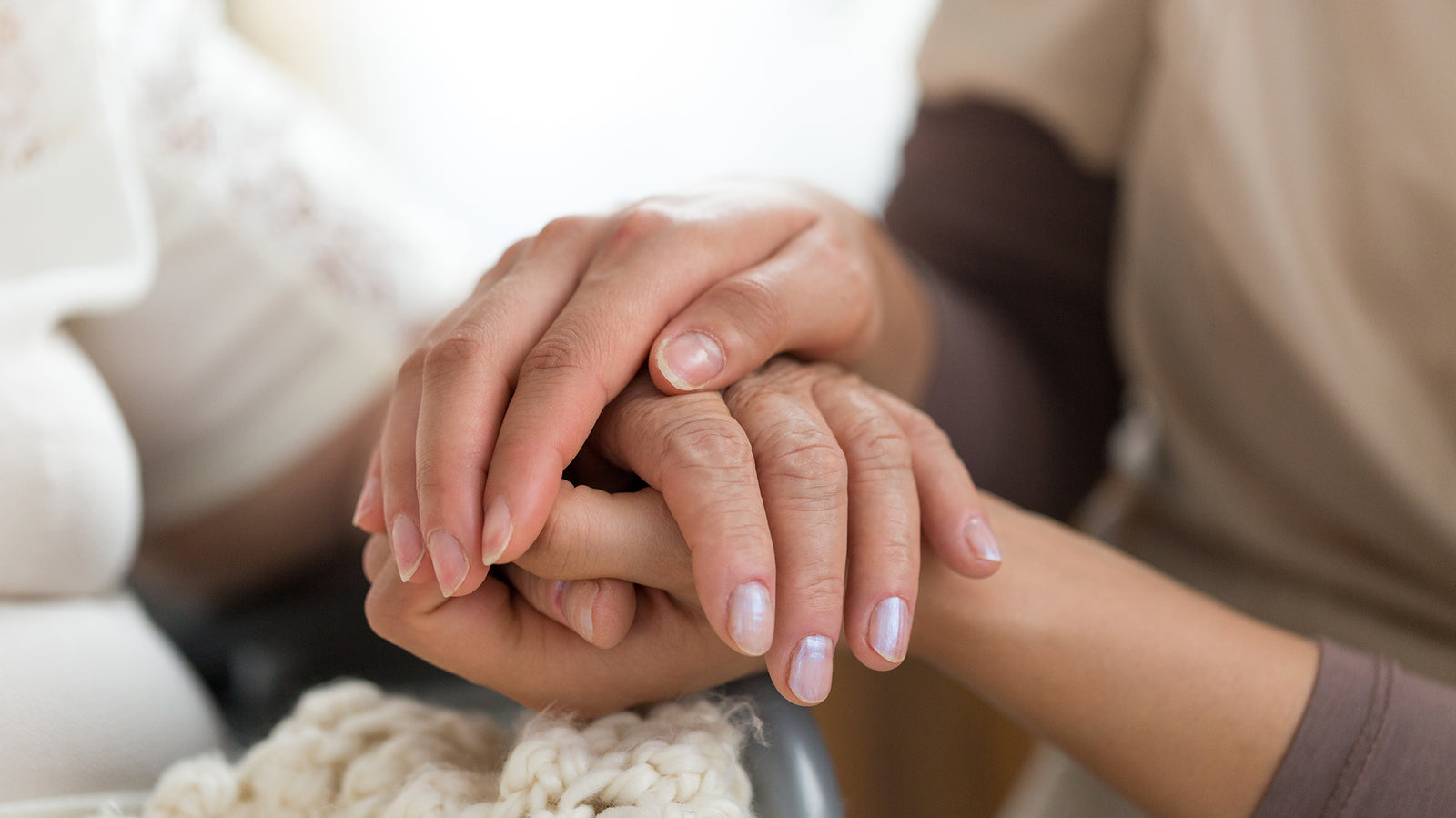Your Cart is Empty


Most of us will serve in a caretaker role at some point in our lives whether it is a spouse, parent, child, or friend who is in pain, ill, or otherwise disabled.
Maybe you’re in that role right now and in over your head.
Caregiving is the perfect example of a chronic stress experience. It creates both physical and psychological stress. It’s unpredictable. It requires you to be ‘on-call’ at all hours of the day. It creates stress in other areas of your life like work and family responsibilities.
All of that leaves you no time to take care of yourself. Eventually, you find yourself in pain and poor health. Thus, decreasing the effectiveness of your caregiving.
You know how when you fly on a plane they tell you to put on your oxygen mask before assisting others? You have to take care of yourself before you can really help someone else.
Let’s examine why caretakers often become unhealthy themselves and what signs to look for. Then, we will reveal how to find the time to focus on your health andincrease your effectiveness as a caretaker.
Caretaking obviously comes with great rewards. It’s something you want to provide. You tend to put your heart and soul into it knowing that your loved one is getting what they need and deserve.

But, man, caretaking is time-consuming and stressful. The negative effects on the caretaker from their role can almost always be traced back to stress.
Here’s what chronic stress does to your body:
Given this burden of constant stress, caretakers are less likely than the general population to practice self-health behaviors and get proper medical care.
So, you’re probably eating like crap, sleeping poorly, not exercising, and not going to the doctor’s or having your normal screenings (mammograms, blood work, etc).
You’re constantly running on empty and just driving ‘til the wheels fall off. This is a recipe for disaster.
In order to take care of yourself, you must carve out the time to do it. Sounds impossible to do, right?
Certainly it will not happen overnight but it does get easier over time once you find your groove. Make lists and keep a planner. Set reminders on your phone. If you need it, consider using respite care services (a substitute caretaker to give you a break) to look after your loved one.
Intention often wins over motivation.
Research has demonstrated that people who set intentions for exercising (“I will exercise for 20 minutes on this day at this time at this place”) were much more likely to follow through on their plan over those who did not.
You can’t go through life just putting out fires every day; you will burn out. Planning and prevention along with an active mindset are key.
Here’s your ‘must-do’ list regarding your own health when you are a caretaker:



With a little bit of planning and determination, and perhaps some outside help, you can achieve this.
Being a caretaker is a big job. It’s difficult for anyone to be able to do everything that needs to be done.
We all want to be the superhero who can do it all, however, you can’t do it all on your own. As the saying goes, “it takes a village.”
Here are some ways that you can utilize your resources to become a better and more efficient caretaker:
If you really look, there are plenty of resources all around you to help you take care of your loved one.
We want to do the best job we can to take care of our loved one who is pain or otherwise needs our help.
As much as we would like to, we just can’t do it all without running ourselves ragged and putting our health in jeopardy.
As the caretaker, your health and well-being is a priority so start treating it that way. Practice self-care and stress relieving techniques to make sure you stay well (and sane).
Don’t be afraid to seek out help when you need it and take advantage of the resources available to you.
Good planning and execution will help you to become a healthier and more efficient caretaker. Your ‘patient’ will thank you.

|
Meet the Author Shannon is a nurse practitioner with an array of clinical experience. She is particularly passionate about health promotion and disease prevention. When she's not nurse practitioner-ing or writing, she enjoys reading, cooking, and yoga. You can check out her blog at https://shannonthenp.com. |